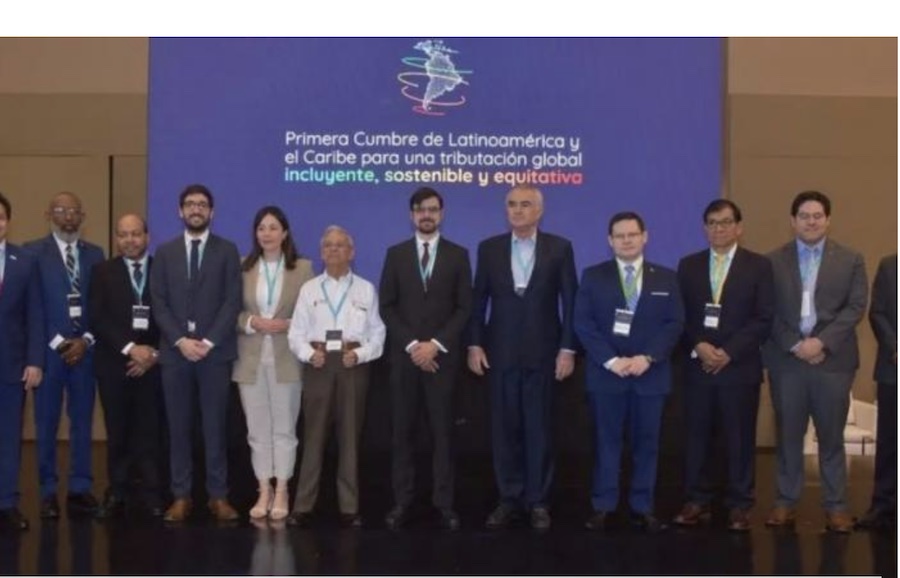. . SUSTAINABLE DEVELOPMENT . .
An article from Euro ES Euro
The First Summit of Latin America and the Caribbean for an inclusive, sustainable and equitable global taxation, had the participation of 16 governments of the region and is taking place in Cartagena. Twitter/@MinHacienda

Three of the main economies of South America (Chile, Colombia and Brazil) joined forces at the ‘First Summit of Latin America and the Caribbean for global, inclusive, sustainable and equitable taxation’ held in Cartagena de Indias, in which officials and Finance ministers from 16 Latin American countries met to establish a joint regional platform.
The objective of this initiative is to address the challenges posed by the global economic landscape, especially in relation to the impact of tech giants like Netflix, Spotify and Amazon in the region.
(Article continued on the right column)
Opposing tax havens and corruption: part of the culture of peace?
(Article continued from the left column)
The summit, which included the participation of three other large economies in the region, such as Mexico, Argentina and Peru, represents an effort to discuss and harmonize the reform of certain shortcomings in the tax structure of Latin American nations, which are characterized by being one of the most unequal areas of the world in terms of wealth distribution.
The debate on the need to establish a worldwide corporate tax rate was the subject of discussion for a long period, however, the inherited social imbalances of the pandemic accelerated the urgency to take action on it.
The large economies of the world have already reached recent agreements to tax the profits of technology companies and other large transnational corporations operating in their countries with a minimum of 15%.
Former Colombian Finance Minister Jose Antonio Ocampo who played a key role in the preparation of the summit, emphasized in an article published in the daily Time about the importance of facing the challenges posed by the digital economy.
Ocampo pointed out that large fortunes and corporations use “shell companies” in tax havens to evade a significant part of their tax obligations, which has aggravated inequality in the region.
José Antonio Ocampo led the preparation of the summit from his position as minister, highlighting how the emergence of the digital economy allowed corporations to use more “shell companies” in tax havens. Twitter/@JoseA_Ocampo
This is related to awareness of tech companies like Google, Facebook and Amazon paying taxes in jurisdictions with very low tax rates, where they establish their financial headquarters, rather than in the countries where they operate and generate revenue.